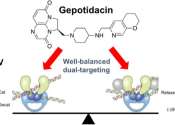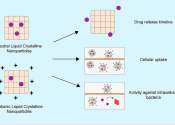A targeted polymer to treat colorectal cancer liver metastases
A nanosized polymer, developed by a research team from Ben-Gurion University of the Negev, can selectively deliver chemotherapeutic drugs to blood vessels that feed tumors and metastases and has emerged as an effective treatment ...









